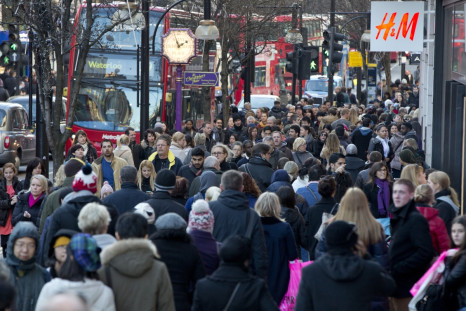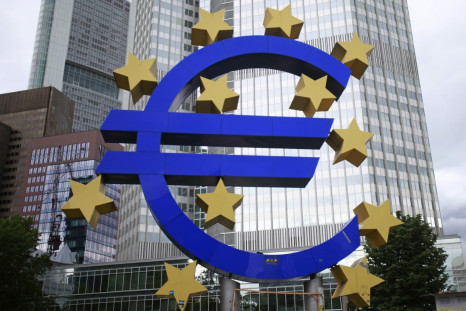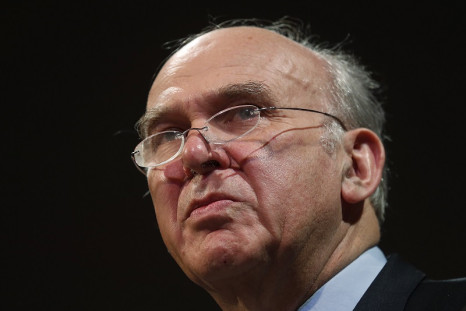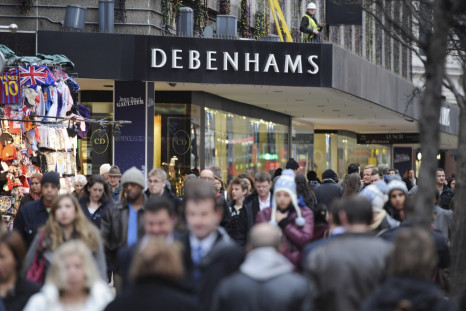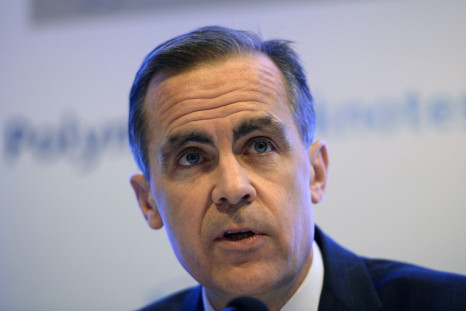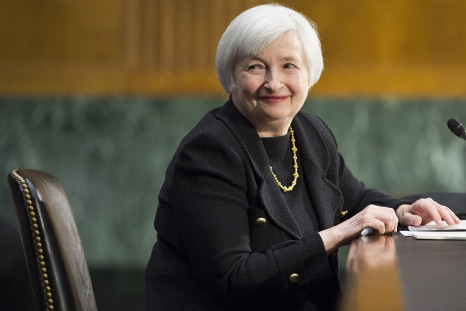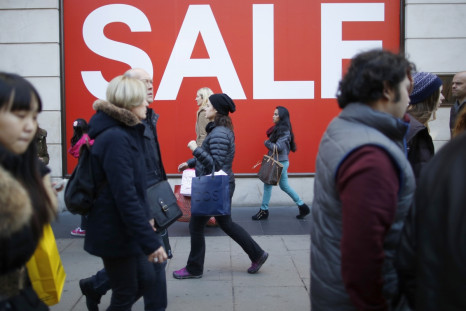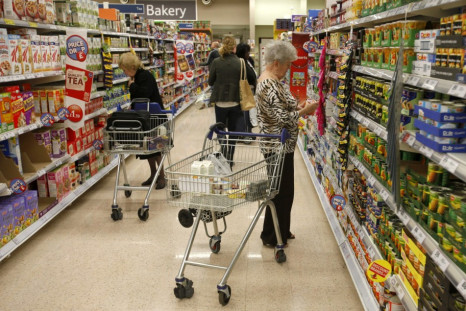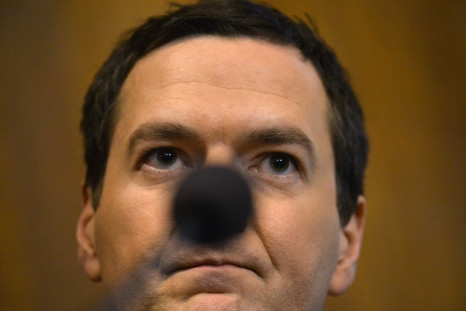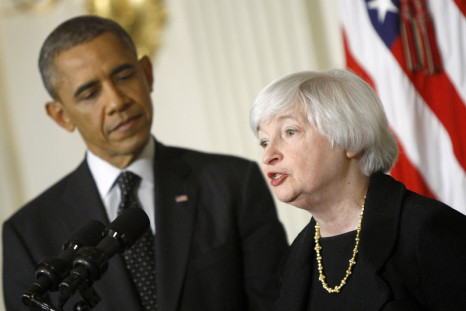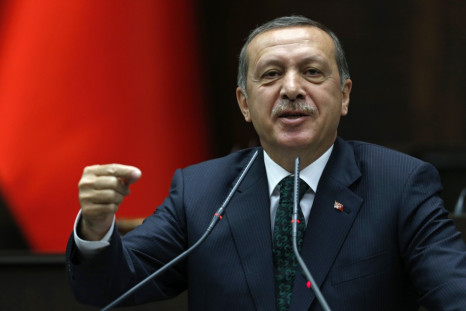Home
> Inflation
Inflation
Singapore Set to Record Strong Growth on Global Demand Recovery
Singapore largely depends on external trade for its economic growth.
UK Retailers Slashing Prices at Record Rate
British Retail Consortium shows shops continuing to cut prices because of consumer finance squeeze, despite UK recovery.
ECB Feels Pressure as Eurozone Inflation Hits Four Year Low
Recession hit eurozone takes a slight knock as inflation decreases.
Lady Gaga Ticket Prices Same as Australia's Average Weekly Wage
Higher inflation in Australia is outpacing cost of living increases in biggest developed economies, according to Bloomberg.
Moody's: India Less Vulnerable to Global Shocks Due to Lower CAD
India's CAD declined to $4.2bn or 0.9% of GDP for fiscal quarter ended in December.
UK Cost of Living Eases as Wage and Inflation Gap Narrows
The ONS says that CPI inflation dropped to 1.7% in February, down from 1.9% in January.
Labour's 'Cost of Living Crisis' Attack Line Has Crumbled
Ed Miliband needs to adopt a new riff to take on Cameron and Clegg as wages catch up with inflation.
UK Government Hikes Minimum Wage to £6.50 Per Hour in Inflation Beating Move
Business Secretary Vince Cable says the move marks the start of a welcome new phase in minimum wage policy.
Cost of Living: UK Real Wages to Remain Below Pre-Crisis Peak Until 2020
PWC says the economic recovery so far has been rich in jobs, but poor in productivity and wages.
Cost of Pint Soars by 1,948% in 40 Years
The average price of a pint is £2.87, a huge hike due to inflation in the UK
David Cameron Backs Inflation-Busting Minimum Wage Hike
Prime minister 'looking forward' to accepting recommendation of Low Pay Commission
UK Minimum Wage: Low Pay Commission Suggests Above-Inflation 3% Hike
Business Secretary Vince Cable reveals LPC recommendation on UK minimum wage rise to £6.50.
UK Retail Sales Growth 'Clear Sign of Sector's Improving Health'
ONS reports UK retail sales rising 4.8% across year in January amid economic and consumer revival.
Cost of Living: UK Family Spending Power Continues to Rise
Asda says the rise was driven by a fall in the rate of CPI inflation.
UK Employment Surge to Slow Amid Productivity Hangover
The CIPD says the vast majority of organisations expect to give pay awards below inflation.
UK Interest Rate Hike Delayed as UK Recovery 'Neither Balanced Nor Sustainable'
Bank of England Governor Mark Carney rejigs forward guidance away from unemployment rate as it falls below 7%.
Fed Chair Janet Yellen: US Labour Market Recovery 'Far From Complete'
US Federal Reserve chair Janet Yellen says too many long-term unemployed in labour market.
UK Recovery: Retail Sector Bosses Bullish Despite Continuing Consumer Squeeze
Korn Ferry survey of retail sector chairmen and chairwomen finds 73% optimistic about economic outlook.
Cost of Living Crisis 'Highly Unlikely' to End Before 2015 General Election
Institute for Fiscal Studies shoots down Conservative hopes that UK recovery will filter down to masses before election.
UK Shop Prices Fall at Fastest Pace in Seven Years on Deeper Discounts
Shop price deflation accelerated to 1% in January from 0.8% in December, according to the BRC.
Dogecoin Circulation to Grow by Five Billion Annually
Most digital currencies including bitcoin are designed to be deflationary.
UK Wages: Over Half of Firms Plan Pay Rises in 2014
As politicians debate the UK 'cost of living crisis', Barclays survey reveals business plans to boost workers' wages.
Cost of Living Crisis: No George Osborne, UK Pay isn't Rising in Real Terms
UK Treasury claims take home pay rose in real terms for 90% of people, but is this true?
Mission Impossible: Can Fed's Janet Yellen Understand the US Economy?
Latest nonfarm payrolls have made the discussion about the correct direction of monetary policy more difficult
Eurozone Could be Entering Deflation Spiral
Eurostat indicates annual inflation is down to 0.8% in December 2013.
Turkey Raises Consumption Taxes on Alcohol, Cigarettes and Cars
Government increases VAT on goods after wave of economic and political instability
Higher Inflation and Lower Wages To Hit Japan's Household Spending Power
Consumer prices rose 1.2% in November.
Japanese Stocks Lead A Bulk of All Asian Markets Higher
Japan's Nikkei share average finishes at its highest in six-years.
BOJ Policymakers Expect Japan's Economic Recovery to Continue in 2014
Several policymakers of Bank of Japan still concerned about pace of growth.
The 12 Days of Christmas Costs 7.7% More in 2013
PNC's Christmas Price Index shows gift costs from 'The Twelve Days of Christmas' surge year-on-year



